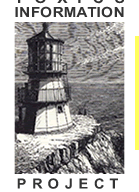HEALTH CONNECTIONS
HOW CAN WE PROTECT OUR CHILDREN?

ABCS OF AUTISM, a booklet in Microsoft Word .doc format.
Links to information about possible environmental autism triggers
ABCs of Autism
***************************************************************************
FOOD & AUTISM CONNECTIONS,
a booklet in Microsoft Word .doc format
STUDY: AUTISM LINKED TO INDUSTRIAL FOOD, ENVIRONMENT www.commondreams.org/headline/2012/04/11-6
 A new study by Clinical Epigenetics, a peer-reviewed journal that focuses
largely on diseases, has found that the rise in autism in the
United States could be linked to the industrial food system,
specifically the prevalence of high-fructose corn syrup (HFCS) in the
American diet. The study, published yesterday online, explores how mineral
deficiencies could impact how the human body rids itself of common toxic
chemicals like mercury and pesticides. The report comes just after a
different report, from the Centers for Disease Control and Prevention,
documented
a startling rise in autism in the United States. “To better address
the explosion of autism, it’s critical we consider how unhealthy
diets interfere with the body’s ability to eliminate toxic chemicals,
and ultimately our risk for developing long-term health problems like
autism.” said Dr. David Wallinga, a study co-author and physician
at the Institute for Agriculture and Trade Policy.
A new study by Clinical Epigenetics, a peer-reviewed journal that focuses
largely on diseases, has found that the rise in autism in the
United States could be linked to the industrial food system,
specifically the prevalence of high-fructose corn syrup (HFCS) in the
American diet. The study, published yesterday online, explores how mineral
deficiencies could impact how the human body rids itself of common toxic
chemicals like mercury and pesticides. The report comes just after a
different report, from the Centers for Disease Control and Prevention,
documented
a startling rise in autism in the United States. “To better address
the explosion of autism, it’s critical we consider how unhealthy
diets interfere with the body’s ability to eliminate toxic chemicals,
and ultimately our risk for developing long-term health problems like
autism.” said Dr. David Wallinga, a study co-author and physician
at the Institute for Agriculture and Trade Policy.
********************************************************************
NEW: AUGUST 2015, SUGGESTIONS RE: EMF/WIFI CONCERN:
To Rhode Island Governor’s Commission On Disabilities (GCD) ,
NEW: AUGUST 2015, IP TESTIMONY ON RI HPV VACCINE MANDATE FOR SEVENTH GRADERS:
************************************************************************************************************************
Asthma
Exposure to Volatile Organic Compounds Found to be Important in the Cause of Childhood Asthma
One in Six High School Students Has Asthma
The American Lung Association on Household Product Triggers
Asthma Linked to Chemicals
Fragrance, Allergies and Asthma
Pesticides and Asthma
Indoor Pools May Contribute to High Asthma Rates
Asthma Risk Higher For Infants Who Swim Indoors
A Case-Control Study: The Association Between Asthma in Children and Phthalates in House Dust
Links to More Asthma Articles
Learning Disabilites
Making the Link Between Chemicals and Learning Disabilities
Treatment Tips: A Brief Overview of Common Problems and Fixes
Autism and Endocrine Disrupters
Autism: It's Not Just in the Head
Autism in Children Linked to Environmental Factors
Cancer
Report Links Environmental and Occupational Exposures to Cancers
Breast Cancer may be Linked to Mother’s Childhood
Accessibility
Accessibility Issues for People Affected by Household Chemicals
Recognizing and Addressing the Environmental and Occupational Health Problems Posed by Chlorinated Organic Chemicals
How do I know if a VOC content limit applies to my product?
Children's Health
“Protecting Children from Toxics at School & Play”
(A TIP Forum by & for Parents, Teachers, & Health Professionals)
ENVIRO-HEALTH CONNECTIONS RESEARCH
August 2005: Environmental Issues and Breast Cancer www.breastcancer.org/cmty_trans_2005_08.html From Breastcancer.org, award winning website.
Cancer, Chemicals and History, by Jon Wiener
www.thenation.com/doc/20050207/wiener
The Nation article | posted January 20, 2005 (February 7, 2005 issue)
No More Breast Cancer (U.K.) - Chemical Carcinogens
www.nomorebreastcancer.org.uk/chemical_carcinogens.html
American Cancer Society - Prevention & Early Detection -
CHEMICALS
Benzene
www.cancer.org/docroot/PED/content/PED_1_3X_Benzene.asp?sitearea=ped
Tetrachlorethylene (Perchlorethylene)
www.cancer.org/docroot/PED/content/PED_1_3x_Tetrachlorethylene_Perchlorethylene.asp?sitearea=ped
Sprecher Institute for Comparative Cancer Research
Cornell University College of Veterinary Medicine, Program on Breast Cancer & Environmental Risk Factors
Environmental Chemicals and Breast Cancer Risk
Fact Sheet #45, May 2002
http://envirocancer.cornell.edu/factsheet/general/fs45.chemical.cfm
List of All Fact Sheets
http://envirocancer.cornell.edu/factsheet/Factsheetalpha.cfm











